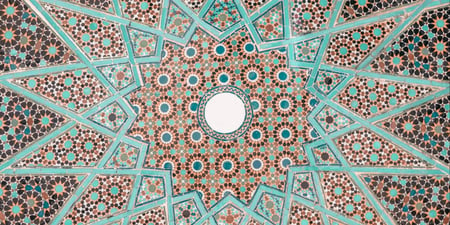
Modern life has created a disconnect between the human race and our place within the ecosystem – however, globally, there is a growing understanding of the benefits nature provides, and methods are being implemented to bridge the divide for the sake of our health and happiness.
Horticultural Therapy
The value of gardens as therapeutic spaces has a long history; the practice gained traction after World War II, mostly in the treatment of mental illness and physical rehabilitation for war veterans. From there, the applications of horticultural therapy have spread widely – providing benefits for people with degenerative diseases, and prison inmates alike.
The broad aim is to acquire new skills, or regain those that were lost. The positive effects are diverse, such as:
- Improved memory and cognitive abilities
- Task initiation
- Language skills and improved socialisation
- Strengthened muscles and greater endurance
- Enhanced balance and coordination
- Learning to work independently
- Problem solving
We know that agriculture is at least 12,000 years old, possibly thousands of years older. When preparing my soil for a new planting, I feel not only a sense of achievement but a strong connection to past generations and what it means to be human. The ability to provide for yourself and others in such a uniquely human way is an incredible feeling. It is a wonderfully grounding experience – in every sense of the word.

Therapeutic Garden Design
A therapeutic garden is defined as “a plant-dominated environment purposefully designed to facilitate interaction with the healing elements of nature.” The main distinction from horticultural therapy is that such a garden isn’t always built or tended to by patients.
The design of a therapeutic natural, green space is deliberately tailored to maximise its benefits. For example, a garden for dementia patients will often have looping paths that lead people around the entire area and back to the start, as a path with a dead end can result in confusion and distress for the patient.
Where I live in the northern suburbs of Melbourne, there is a large population of people with Greek and Italian heritage. As we know that scent is more closely associated with our memories than any other sense, many therapy gardens in local aged-care facilities have a bed of Mediterranean aromatic herbs. It is truly beautiful to see a patient’s eyes light up with recognition and childhood memories.
A major tactic in creating an immersive therapeutic experience is designing for all the senses. Even in a small courtyard surrounded by a bustling hospital, you can still hear running water and birdsong, smell herbs and perfumed flowers, and hear the breeze whistling through long grasses. This oasis of calm in the middle of so much chaos can transport you away from your worries.
Shinrin-Yoku (Forest Bathing)
Shinrin-yoku (loosely translated as ‘forest bathing’ or ‘taking in the forest atmosphere’) is a concept originating in Japan in the 1980s. Put simply, it is the act of taking a mindful, leisurely walk in nature, engaging all of your senses along the way, with an aim of relaxation, restoration and rejuvenation.

Benefits of Shinrin-yoku include, but are not limited to:
- Boosted immune system
- Reduced blood pressure
- Decreased stress and improved mood
- Increased ability to focus, even in children with ADHD
- Accelerated recovery from surgery or illness
- Increased energy levels
- Improved sleep
It is interesting to note that the native forests of Japan have many cedars and other species with high aromatic oil contents, and these natural compounds are known to increase our white blood cell count, boosting our immune system and lowering stress levels.
There is abundant research verifying the benefits of such immersion in nature. We evolved as an element of something much bigger than ourselves, and it makes sense that true happiness can be found when we try, once again, to find our place within the greater scheme of things.
Disclaimer: This Content has been developed from our generous global community and is intended for informational purposes only. This Content is not, nor is it intended to be, a substitute for professional medical advice, diagnosis, or treatment and should never be relied upon. Further, the personal views and experiences published are expressly those of the author, and do not represent the views or endorsement of SoulAdvisor through the act of publication on our site.






















